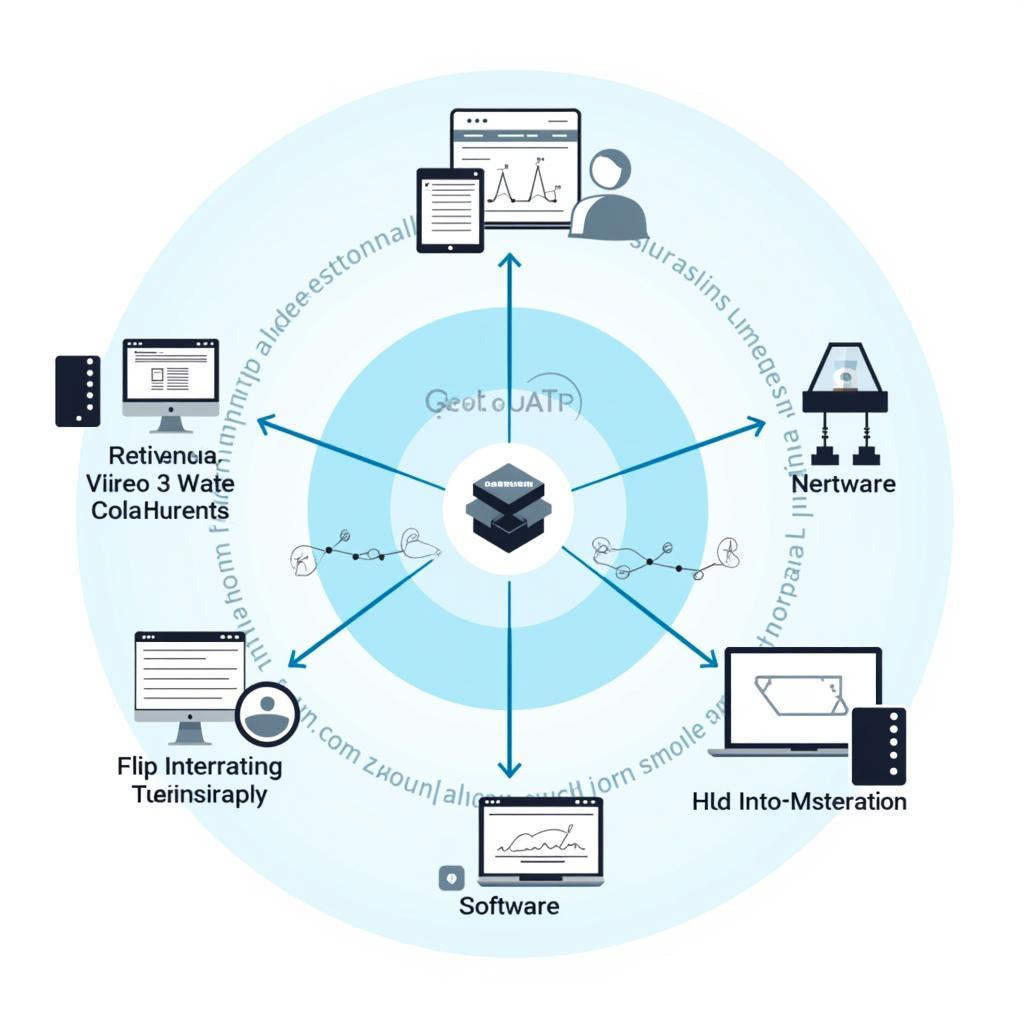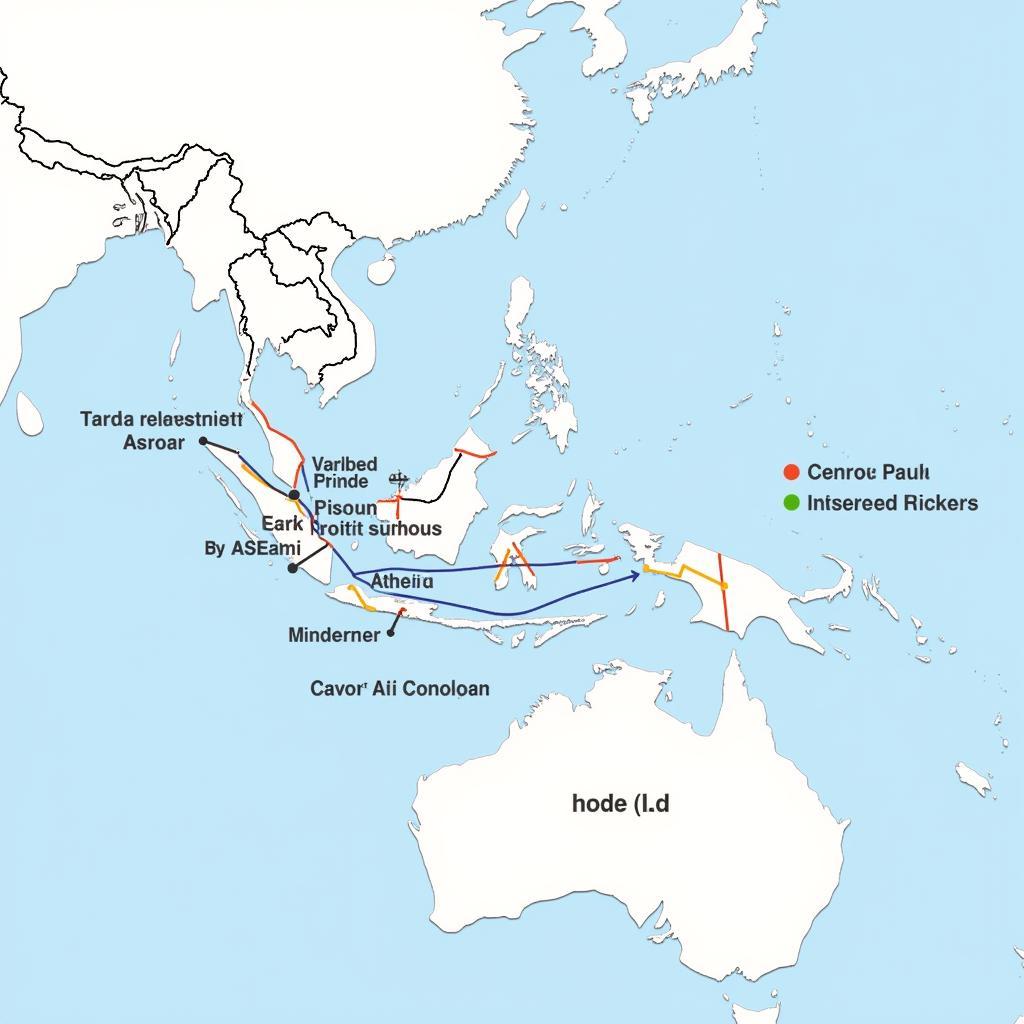Applied System Engineering (ASE) is a crucial discipline that focuses on the design, development, and implementation of complex systems. It involves a systematic and interdisciplinary approach, drawing upon principles from engineering, management, and other relevant fields to ensure the successful realization of intricate projects.
Understanding ASE: Beyond Traditional Engineering
ASE distinguishes itself from traditional engineering disciplines by adopting a holistic perspective. While traditional engineering often concentrates on individual components, ASE emphasizes the integration and interaction of these components within the larger system context. This approach is essential for addressing the complexities posed by modern systems, which frequently encompass diverse technologies, stakeholders, and operational environments.
 ASE System Integration
ASE System Integration
Key Principles of ASE
Several core principles underpin the practice of ASE:
- Systems Thinking: Encourages a comprehensive understanding of the system as a whole, recognizing the interdependencies between its parts and the emergent behavior that arises from their interaction.
- Lifecycle Perspective: Emphasizes that systems evolve over time, requiring careful consideration of all stages from conception and design to implementation, operation, maintenance, and eventual decommissioning.
- Iterative Development: Acknowledges that complex systems are best developed through iterative cycles of design, testing, and refinement, allowing for flexibility and adaptation based on feedback and evolving requirements.
- Risk Management: Integrates risk identification, analysis, and mitigation strategies throughout the system’s lifecycle, proactively addressing potential challenges and uncertainties.
Applications of ASE
ASE finds applications across a diverse array of industries and sectors, including:
- Aerospace: Design and development of aircraft, spacecraft, and related systems.
- Automotive: Engineering of modern vehicles incorporating sophisticated electronics, software, and safety systems.
- Healthcare: Implementation of complex medical devices, healthcare information systems, and hospital infrastructure.
- Telecommunications: Development of communication networks, infrastructure, and services.
- Energy: Design and management of power grids, renewable energy systems, and energy storage solutions.
 ASE Applications Across Industries
ASE Applications Across Industries
Benefits of Implementing ASE
Adopting ASE principles and methodologies offers significant benefits:
- Improved System Performance: By optimizing the interaction between components, ASE enhances overall system efficiency, reliability, and functionality.
- Reduced Development Costs: ASE’s emphasis on early identification and mitigation of risks minimizes costly rework and delays during the development process.
- Enhanced Collaboration: The interdisciplinary nature of ASE fosters effective communication and collaboration among stakeholders, including engineers, managers, and customers.
- Increased Customer Satisfaction: ASE’s focus on meeting user needs and requirements leads to the development of systems that are more user-friendly and aligned with customer expectations.
Challenges in ASE
Despite its advantages, implementing ASE presents certain challenges:
- System Complexity: Dealing with the inherent complexity of modern systems, involving numerous interconnected components and intricate interactions, requires specialized knowledge and tools.
- Interdisciplinary Coordination: Coordinating efforts across diverse engineering and non-engineering disciplines can be demanding, necessitating effective communication strategies and a shared understanding of goals.
- Rapid Technological Advancements: Keeping pace with rapid technological advancements and integrating them seamlessly into existing systems poses continuous challenges for ASE practitioners.
The Future of ASE
ASE is expected to play an increasingly critical role in shaping technological advancements and addressing complex societal challenges. As systems become more interconnected and data-driven, the demand for skilled ASE professionals will continue to grow. Embracing emerging technologies like artificial intelligence, machine learning, and the Internet of Things (IoT) will be crucial for the future of ASE, enabling the development of smarter, more efficient, and resilient systems.
FAQ
What are the key skills required for an ASE professional?
Successful ASE professionals possess a strong foundation in systems thinking, problem-solving, communication, and teamwork. They should have a solid understanding of engineering principles, project management methodologies, and relevant industry standards.
How does ASE differ from systems engineering?
While closely related, ASE emphasizes the practical application of systems engineering principles in real-world projects. It focuses on the implementation, integration, and operational aspects of systems development.
What are some commonly used tools and techniques in ASE?
ASE practitioners utilize various tools and techniques, including modeling and simulation software, requirements management systems, risk analysis tools, and configuration management tools.
What are some resources for learning more about ASE?
Several professional organizations, such as the International Council on Systems Engineering (INCOSE), offer certifications, training programs, and resources for individuals seeking to enhance their knowledge and skills in ASE.
ASE Optica: A Resource for ASEAN Media Professionals
For media professionals in the ASEAN region seeking to deepen their understanding of ASE and its implications for various industries, ASE Optica offers valuable insights and resources.
Need Assistance?
For any inquiries or support related to Asean Media Directory, please contact us at:
Phone Number: 0369020373
Email: [email protected]
Address: Thon Ngoc Lien, Hiep Hoa, Bac Giang, Vietnam
Our dedicated customer support team is available 24/7 to assist you.

